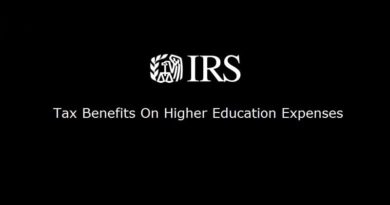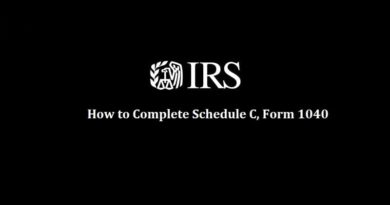New Meals & Entertainment Deductions Under Tax Cuts and Jobs Act
Previously, the IRS was quite lenient when it came to the business-related meals and entertainment deductions. 50% of such business expenses were allowable deductions for tax purpose. This means that a business could use those expenses to lower their taxable income.
What this means is that previously you could deduct half of all the meals and entertainment that your business incurred to lower your taxable income.
For e.g., if you incurred $1,000 under M&E, you were allowed to include $500 of it as Meals & Entertainment expense. Thus reducing your taxable income (and eventually the taxable liability) by $500.
However, Uncle Sam has now decided to get a bit stricter on this issue and as laid down in the new Tax Cuts and Job Acts (TCJA) businesses can no longer claim deductions on their entertainment expenses.
This article discusses the nitty-gritty of this law in detail below:
Also Read: Complete guide about AOTC & LLC – Two education credits available to the US Taxpayers.
What does the Tax Cut and Jobs Act say about Meals and Entertainment Expense?
While filing your 2018 tax returns, you can no longer claim entertainment expenses under the TCJA.
Note that this does not include the Meals Expense and they can be claimed as a business deduction (only 50%) just like before. However, there are certain cautions now that the taxpayer needs to pay heed to.
These are:
- The food and beverages are provided to the current or potential client, customer, consultant, or other relevant business contacts
- The taxpayer or the employee of the taxpayer is present during the furnishing of the meal
- The expense is an ordinary and necessary business expense paid or incurred during the tax year
- The cost of Meals is not extravagant
- When the food and beverages are provided along with the entertainment services the cost of food and entertainment is not mingled in such a way that they cannot be segregated
What Constitutes as “Entertainment” in Meals & Entertainment Expense?
Once the verdict is out that you can no longer claim the “Entertainment” expense as a tax deduction in your business returns, it’s important to distinguish what the term, “Entertainment” means in this context.
Since traditionally, businesses have been cramming the two together, many have even forgotten the difference between the two. So it’s important to draw a distinction in order to make sure that the businesses do not claim an undue advantage.
According to the IRS, Entertainment is any activity which is of a type generally considered to constitute entertainment, amusement, or recreation, such as entertaining at night clubs, cocktail lounges, theaters, country clubs, golf and athletic clubs, sporting events, and on hunting, fishing, vacation, and similar trips, including such activity relating solely to the taxpayer or the taxpayer’s family. The term “entertainment” may include an activity, the cost of which is claimed as a business expense by the taxpayer, which satisfies the personal, living, or family needs of any individual, such as providing food and beverages, a hotel suite, or an automobile to a business customer or the customer’s family.
There can be other types of entertainment as well such as organizing an indoor or backyard party, Netflixing, or watching cable TV. Information resources such as new cable tv statistics can provide a great deal of data on daily TV consumption, the number of TVs used in households, commercial stations, leading cable networks, etc. Business owners may choose to get entertainment systems (from this company or similar others) installed on the premises to have in-house recreation going on as well. However, that might fall purely under business expenses and not entertainment expenses.
Which Expenses are NOT Considered as Entertainment Expense?
At the same time, there are certain expenses which may appear to fall in the “Entertainment” zone for many but IRS does not consider them to be so. Therefore, businesses can continue to deduct them from their taxable income. These expenses are:
- Supper money provided by an employer to an employee working overtime
- Hotel room maintained by an employer for lodging of employees while in business travel status
- An automobile used in the active conduct of a trade or business even though also used for routine personal purposes such as commuting to
and from work.
Note: The above expenses are only considered NOT as entertainment if they’re made in the due course of business to carry out a trade or business. For e.g., if the employer provides for a hotel lodging or an employee who is on a vacation then this will be considered as an Entertainment Expense.
If you have a knack of technical jargon then here’s the document which (in a very boring tone) explains this law in more detail.
Also Read: Complete guide to understanding the Section 199A – Qualified Business Income
What does the term, “Lavish” mean?
As we mentioned above, a business can claim a tax deduction on the “Meals” provided that if they’re not lavish.
Now, the question arises that what actually does the term, “Lavish” mean here?
After all, there must be an objective criteria to decide if the amount that you’re spending for meals are not going to trigger your tax auditor at IRS.
Well, unfortunately, the IRS hasn’t defined the term, “lavish” under the pretext of Meals and Entertainment. So it seems that the businesses have to apply their own understanding.
However, a golden rule to keep your meals expenses within an acceptable level and not enter the realm of “lavishness” would be to carry on the historical proportion of meals expense against your income. Though this is only an opinion and not be taken as hard and fast rule.
Also Read: Should you issue a W-2 or 1099 to your babysitter?
Examples
To help understand further here are a couple of examples to clear any confusion that you may have in your mind. Note that keeping the fair disclosure policy and the idea of not reinventing the wheel, I’m simply regurgitating the same examples as mentioned in this document by IRS.
Example 1
Taxpayer A invites B, a business contact, to a baseball game. A purchases tickets for A and B to attend the game. While at the game, A buys hot dogs
and drinks for A and B.
The baseball game is entertainment and, thus, the cost of the game tickets is an entertainment expense and is not deductible by A.
The cost of the hot dogs and drinks, which are purchased separately from the game tickets, is not an entertainment expense. Therefore, A may deduct 50 percent of the expenses associated with the hot dogs and drinks purchased at the game
Example 2
Taxpayer C invites D, a business contact, to a basketball game. C purchases tickets for C and D to attend the game in a suite, where they have access to
food and beverages. The cost of the basketball game tickets, as stated on the invoice, includes the food and beverages.
The basketball game is entertainment, therefore, the cost of the game tickets is an entertainment expense and is not deductible by C. The cost of the food and beverages, which are not purchased separately from the game tickets, is not stated separately on the invoice. Thus, the cost of food and beverages also is an entertainment expense. Therefore, C may not deduct any of the expenses associated with the basketball game.
Example 3
Assume the same facts as in Example 2, except that the invoice
for the basketball game tickets separately states the cost of the food and beverages.
As in Example 2, the basketball game is entertainment, therefore, the cost of the game tickets, other than the cost of the food and beverages, is an entertainment expense and is not deductible by C. However, the cost of the food and beverages, which is stated separately on the invoice for the game tickets, is not an entertainment expense. Therefore, C may deduct 50 percent of the expenses associated with the food and beverages provided at the game.
Final Word
Before wrapping up, it’s best to summarize what we’ve learned above. Especially for those who want a quick recap of the new law.
- Taxpayers (businesses) can no longer deduct the entertainment expenses from their taxable income. Previously they were allowed to deduct 50% of the entertainment expenses.
- Taxpayers (businesses) can deduct the 50% of meals-related expenses incurred in due course of the business.
- However, IRS is no longer lenient as before when it comes to allowing meals expense and the businesses have to satisfy certain conditions (read above) in order to include the meals-related expense in their tax returns.






